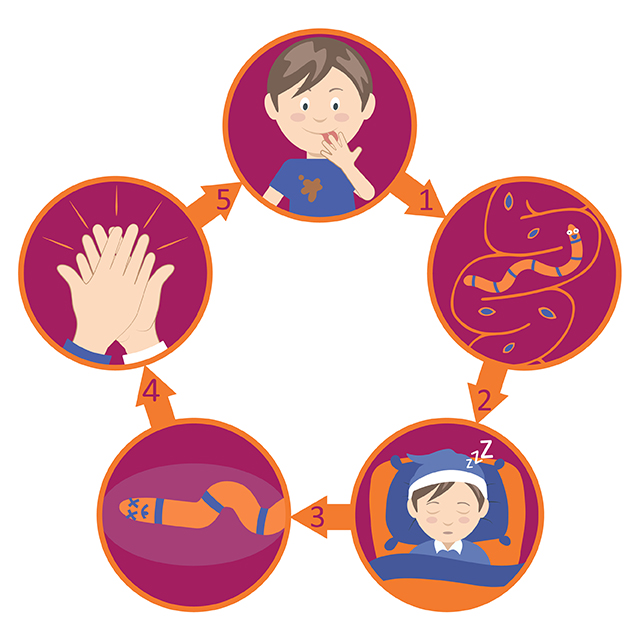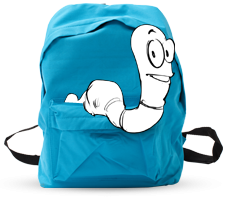There are many worms that can affect humans and cause problems in children across the globe, including threadworm, hookworm, roundworm, whipworm and tapeworm. Fortunately, apart from threadworm, these worms are common in regions with a high population density and poor hygiene and sanitation facilities – and therefore considered rare in Australia and New Zealand. The most common worm infection in Australia and New Zealand is threadworm (also known as pinworm) infection. This information focusses on infections, how they occur and spread, and how to effectively treat them.
It is safe to say that a lot of families have had to deal with worms in kids from time to time. Although caregivers tend to get embarrassed if their children have worms, they shouldn't be, Threadworm infections are highly contagious and easy to catch – but they're also easy to treat, thanks to COMBANTRIN® - with several different deworming products to choose from, in 2 formats to make them easier for little ones as well as the adults to stomach.
The Threadworm Lifecycle
You can be infected with threadworm no matter how clean or careful you are! Adults can be carrying eggs even if they have no symptoms. An infection is passed from person to person by swallowing worm eggs, allowing them to then go through what we call the threadworm life cycle.
The worms will carry on their lifecycle as normal if they're not treated quickly and effectively. Here's how that lifecycle occurs:

- Infection begins when eggs are swallowed, usually directly through contaminated hands or indirectly through contaminated food, bedding, clothing or other articles.
- The eggs then travel to the small intestine where they hatch and mature.
- A few weeks after ingestion, the adult female worm moves down the gut and exits the body via the anus to lay eggs. This usually occurs during the night, when the infected person is asleep (which is why checking the anus during the night is a good way to identify whether there's a worm infection or not).
- The female adult worm then dies, having successfully completed her reproductive mission!
- Eggs are then excreted in the faeces or spread by contaminated hands.
Eggs can be spread by contaminated hands to the external environment, where they are highly contagious and can survive for several days - especially in cool, humid areas such as bathrooms. Due to the eggs being laid around the anus, they may cause intense itching, especially at night. This means children can easily reinfect themselves by scratching the anus, which results in them scraping eggs under their fingernails. Naturally, transfer of eggs from contaminated hand to mouth can occur if you don't wash your hand. For example, the eggs can be transferred to your mouth or on to food or objects, such as toys and kitchen utensils - and the whole threadworm life cycle starts again. If someone else touches a contaminated object, or eats contaminated food and then touches their mouth, they'll become infected. Children are more likely than adults to pick up an infection, most likely due to a child's tendency to put their fingers in their mouths!
For families with dogs and cats, you'll be pleased to know that dogs or cats do not get threadworms, so pets do not cause threadworm infections in humans.
The importance of treating worms
It's crucial to treat worm infections as soon as the signs and symptoms start to appear. The good news is that threadworm infections, though very annoying, are not generally serious and are easily treated with the correct medication1.
Due to the fast reproductive cycle of these worms, an infection which is left to develop can mean it takes a few treatments to get rid of all the worms and the eggs that they've laid. This is another reason why it's so important to act fast if you suspect a worm infection.
COMBANTRIN® and COMBANTRIN®-1– for your deworming needs
COMBANTRIN® and COMBANTRIN®-1 provides a comprehensive solution to caregivers' deworming needs. With chocolate squares that are perfect for child-friendly dosages, to tablets that help caregivers to deworm after one of their little ones pick up an infection, there's a COMBANTRIN® product to suit everyone.
Remember, to properly prevent reinfestation, make sure you treat the entire family with COMBANTRIN® or COMBANTRIN®-1 when one member starts to show symptoms of a worm infection.
Read more about different types of worm infections:



